by Joel Tolman, Director of Impact & Engagement
This spring and summer, Common Ground is trying to do something we’ve never done before. Well, two things actually.
We’re trying to build a new, integrated 9th grade experience. Imagine four big units of study, each lasting a quarter of the school year, tackling really big questions like, “How do we feed ourselves, and what does our food tell us about ourselves?” Imagine these units bring together teachers and content from four different subject areas — math, English, social studies, and science — and are also built to help students grow as leaders and human beings. Imagine these units all culminate in big products and performances for public audiences — for instance, an open mic performance for community and family members. Imagine that students have the whole morning, 8-11:30, every day of the week for the whole school year to do this deep, challenging, real-world work.
The way we’re trying to build this 9th grade experience is also different than anything we’ve done before. We’re trying, as best we can, to have students, their families, and our neighbors in New Haven at the table as co-creators of this curriculum. For teachers who are used to building their courses from the ground up, and taking full ownership of what they teach, this can feel like a sea change. We don’t know of other schools that have tried to do this either, so we are making the road by walking.
What’s this like? It’s amazing, and hard, and so far from perfect. Here are some moments that stand out …
What’s been happening with the feedback and ideas that the community has provided to date? Here’s a sneak peek into what’s been coming together from Keith Lambert, our 9th grade English teacher and one of the core members of our design team:
In developing the curriculum toward the end of the year and during summer institute, the team really built the content and experiences around the needs of the community members that contributed their voices. We really got a good sense of what our parents, students, and community partners were excited about in this new transition, and let that guide a lot of our decision-making. From our upcoming self-exploration with “community food stories” and “community dinner” for unit one, to the outdoor survival experiences in unit two, to the poetry and art slam of unit three…From the research into our local communities, social justice around marginalized groups in New Haven in units three and four to a real-world culminating project that asks our students to take action. All of this came into fruition due to the energy our community put into the project. We heard it, and ran with it. And we’re super excited.
We spent long hours during and after our summer institute both with and without the ACES consultation team to work with feedback to this master plan, to revise, and innovate. The intricate work of aligning 5 different content areas has been difficult, but extremely rewarding. We have a dream team working on this project and it’s really exciting to be a part of it.
Currently, the team is working on our separate (yet obviously deeply connected) curriculum docs and plans, compiling content, and aligning state standards to the work. We’ve been in constant contact this summer utilizing a communication app called “Slack”, using Google Docs, and through email. As we find the need, we’ve been arranging small group meetings to clarify and crystallize the elements of our performance tasks, literacy, science, math, and social studies skills….
Here are early drafts of the big questions and projects that will drive the 9th grade curriculum:
| Unit 1: Feeding Ourselves |
Unit 2: Survival |
Unit 3: Identity & Diversity |
Unit 4: Growth & Change |
|---|---|---|---|
| How do we feed ourselves? What does our food say about who we are? | How do we survive together? Why is it so hard? | Who am I? Who are “we”? What divides and connects us? | How do we decide what we most value in our communities? How do we honor and reconcile competing values? How can we use our understanding of growth and change to take informed action to create a sustainable future? |
| Students create a community cookbook and meal that share food and the stories behind these foods. | In teams, students take on a series of outdoor survival challenges that demonstrate learning across subjects, and reflect on these challenge experiences. | Students share art, poetry, spoken word, and other works that explore identity and challenge implicit bias. | Students will create and defend a proposal for making sustainable change and building social justice in their community. |
There’s lots more to come, and we have already learned so much. The process of inviting community in can’t be over after a few meetings — and we need to figure out how to continue to welcome you all into the process. Next year — as we dive into building a new, integrated 10th grade experience on top of this 9th grade foundation — we know we need to start this work in October, not in March, because this process takes a lot of time. We need to be humble, and listen to each other carefully, when we are trying to do something so new.
Have input on what we’ve done so far? Want to be involved in what comes next? We’d love to hear from you.

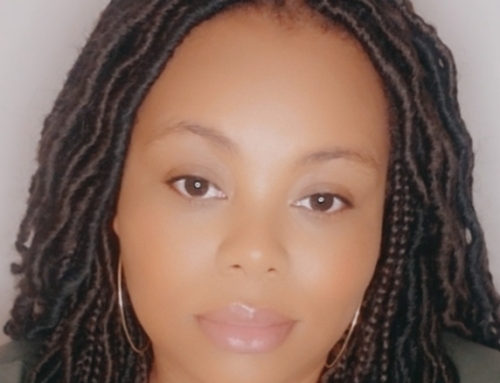
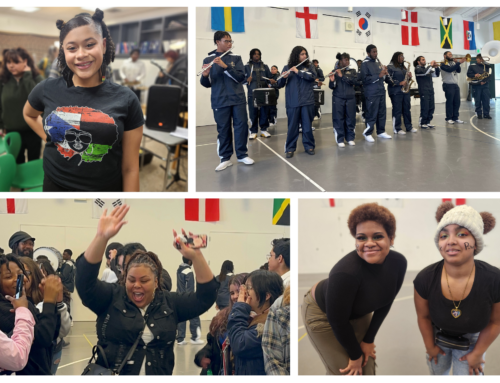
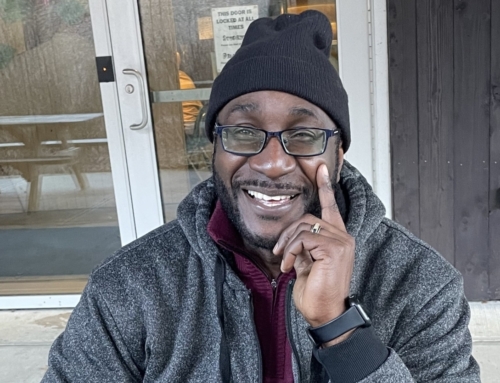
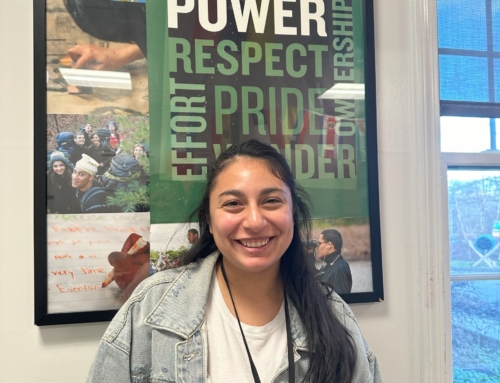
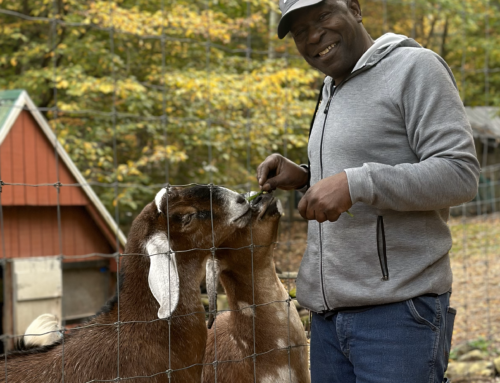
I know I have commented before but I think I forgot to mention “debate,” as in formal debate team(s). I was a coach for a 7-8 grade debate league in Bridgeport Public Schools several years ago. It was truly eye-opening to see students transform from lethargic participants in the classroom to dynamic debaters! New Haven had a wonderful debate league run by Yalies who were master debaters themselves. I hope they still do and if so, I strongly suggest you all consider adding formal debate to the CG experience.
Thank you for this, Paul! I agree that debate is such an important skill, and such a valuable way to engage students. The fourth of the 9th grade units will include a strong focus on debate, and give all our students a chance to practice and demonstrate these skills, building on something that Mr. Lambert has included in his 9th grade English class for a number of years.
I also had a really powerful experience as a high school debater, and I know we’ve connected with the Urban Debate League a few different times. I don’t know if it still exists — we haven’t been involved for a couple of years — but I will remind the person who runs our after-school programs of this resource.
I used to teach at a progressive college where the curriculum was co-constructed and aligned with inter-disciplinarity and self-directed studies in learning communities. i would be happy to offer my experience to help create more programs like this one.